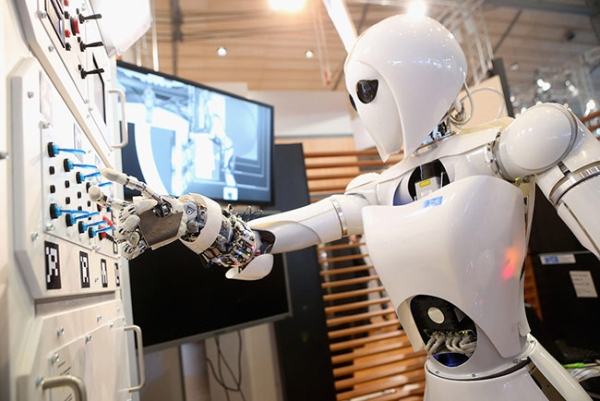This information is presented in the report "Human Development 2025 – The Age of Artificial Intelligence and Human Development Choices," published by the United Nations Development Programme (UNDP) on May 12 in Hanoi .
The report focuses on the Human Development Index (HDI), which measures the achievements of nations based on three fundamental criteria: health, education, and income. The HDI also serves as a powerful reminder that economic development is only meaningful when it is linked to human progress and well-being.
According to the report, the global Human Development Index (HDI) in 2024 is showing signs of stagnation in most regions. In this context, AI is seen as a promising new driving force, but it also comes with significant challenges. The report raises a series of important questions about equity, ethics, governance, and inclusiveness in the design and deployment of AI – to ensure that this technology serves the well-being of all.
Ms. Do Le Thu Ngoc, Assistant Resident Representative and Head of the Inclusive Growth Unit at UNDP, stated that Vietnam is highly regarded for its significant progress in human development. Vietnam's Human Development Index (HDI) in 2023 reached 0.766, placing it among the countries with a high level of human development, ranking 93rd out of 193 countries and territories. From 1990 to 2023, Vietnam's HDI increased by 53.5% – from 0.499 to 0.766, a remarkable achievement.

However, when adjusted for inequality, Vietnam's HDI falls to 0.641, corresponding to a deficit of 16.3% – reflecting a significant gap in access to healthcare, education , and income. This deficit is on par with the average for the East Asia-Pacific region.
The report also revealed a global survey showing that people have a realistic but positive view of AI. While half of respondents are concerned about potential job automation, 60% believe AI will create many new job opportunities. In countries with medium and low HDI, 70% expect AI to boost productivity, and two-thirds said they would use AI in education, healthcare, or work within the next year.
Therefore, experts recommend building an economy where humans collaborate with AI rather than compete, while modernizing education and healthcare systems to keep pace with new demands. Humans need to play an active role throughout the entire AI development lifecycle – from design and deployment to monitoring.
Dr. Vu Thi Thanh from the Institute for Human, Family and Gender Studies emphasized that technology is both a tool and a result of human development. Technological innovation reflects the potential, intelligence, and creativity of humankind. Freedom, social participation, and access to resources are conditions for technology to develop for the benefit of humanity.
However, experts also warn of accompanying risks such as increased inequality, job loss, privacy violations, pressure to change careers, and negative impacts on mental health, especially in the context of the rapid spread of misinformation online.
According to Ms. Thanh, it is necessary to promote in-depth research on the actual impact of technology, innovation, and AI on human development, not just focusing on the Human Development Index (HDI). In terms of policy, people should be placed at the center of all directions in scientific and technological development – so that technological achievements spread to all social groups, leaving no one behind.
Associate Professor Cao Thu Hang shared that AI ethics is becoming an essential element in mitigating risks and maximizing the positive value of the technology. If seriously developed and implemented, AI ethics will not only support increased income, education, and life expectancy, but also ensure privacy, autonomy, and creativity – the foundations of sustainable and inclusive development.
"Combined with human creativity and inherent compassion, building and implementing AI ethics will promote stronger, more substantive, fairer, and more equitable human development," Ms. Hang emphasized.
Source: https://doanhnghiepvn.vn/cong-nghe/ung-dung-ai-vi-con-nguoi/20250512055339972











































































































Comment (0)